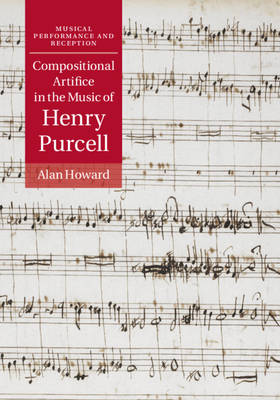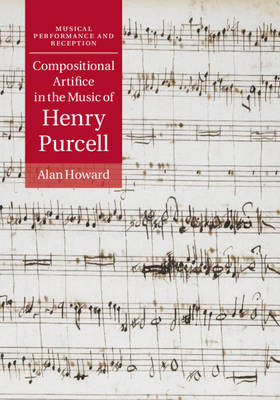
Door een staking bij bpost kan je online bestelling op dit moment iets langer onderweg zijn dan voorzien. Dringend iets nodig? Onze winkels ontvangen jou met open armen!
- Afhalen na 1 uur in een winkel met voorraad
- Gratis thuislevering in België vanaf € 30
- Ruim aanbod met 7 miljoen producten
Door een staking bij bpost kan je online bestelling op dit moment iets langer onderweg zijn dan voorzien. Dringend iets nodig? Onze winkels ontvangen jou met open armen!
- Afhalen na 1 uur in een winkel met voorraad
- Gratis thuislevering in België vanaf € 30
- Ruim aanbod met 7 miljoen producten
Zoeken
Omschrijving
Fugal invention has proved a successful line of analytical inquiry in recent studies of repertoires from Josquin to J. S. Bach. Alan Howard brings similar insights to the music of Henry Purcell, and proposes the first analytical approach to his music to examine compositional methods alongside historically contemporary theory, focusing particularly on Purcell's 'artificial' approach to imitative counterpoint. Through this methodology Howard challenges previous responses to Purcell's music that portrayed him as fundamentally conservative. This study offers fresh insights into the musical world in which Purcell lived and worked and situates Purcell's compositional concerns in the broader context of notions of artifice in Restoration culture. Howard thereby offers both a fresh analytical approach - to Purcell's early instrumental works and to his later concerted vocal music - and a critique of the reception history surrounding the fantazias and sonatas in particular.
Specificaties
Betrokkenen
- Auteur(s):
- Uitgeverij:
Inhoud
- Aantal bladzijden:
- 312
- Taal:
- Engels
- Reeks:
Eigenschappen
- Productcode (EAN):
- 9781107006669
- Verschijningsdatum:
- 28/11/2019
- Uitvoering:
- Hardcover
- Formaat:
- Genaaid
- Afmetingen:
- 190 mm x 254 mm
- Gewicht:
- 789 g

Alleen bij Standaard Boekhandel
+ 251 punten op je klantenkaart van Standaard Boekhandel
Beoordelingen
We publiceren alleen reviews die voldoen aan de voorwaarden voor reviews. Bekijk onze voorwaarden voor reviews.











